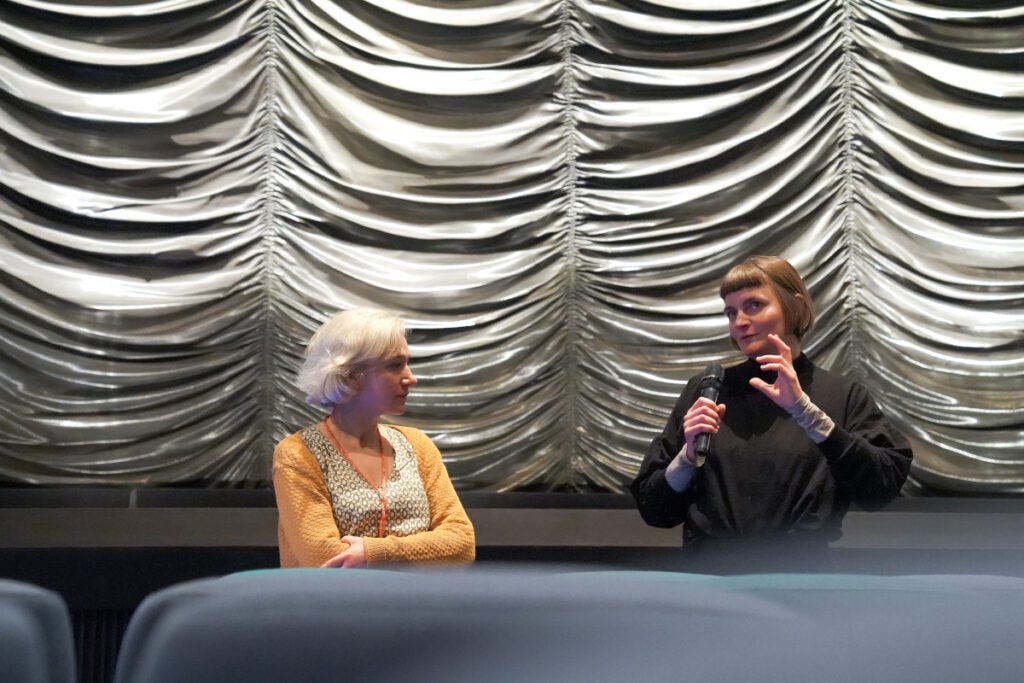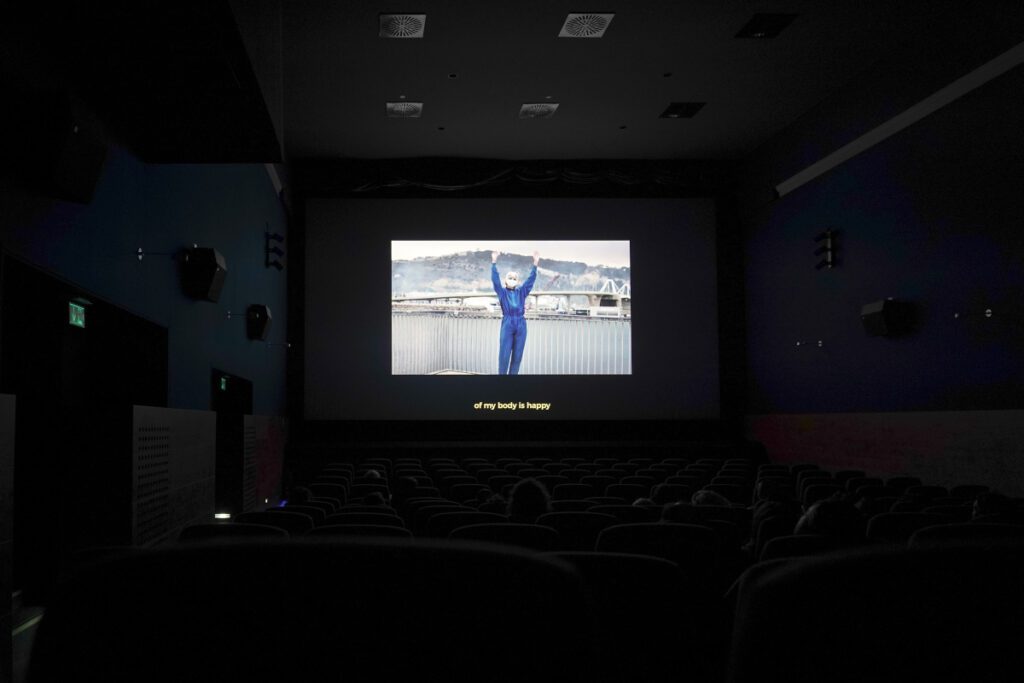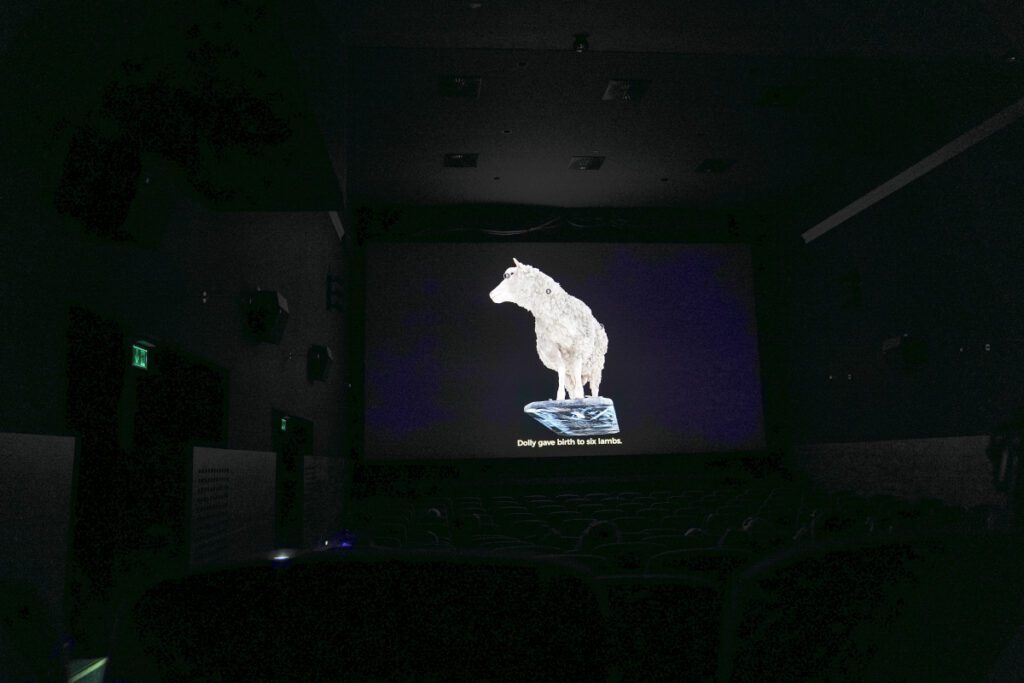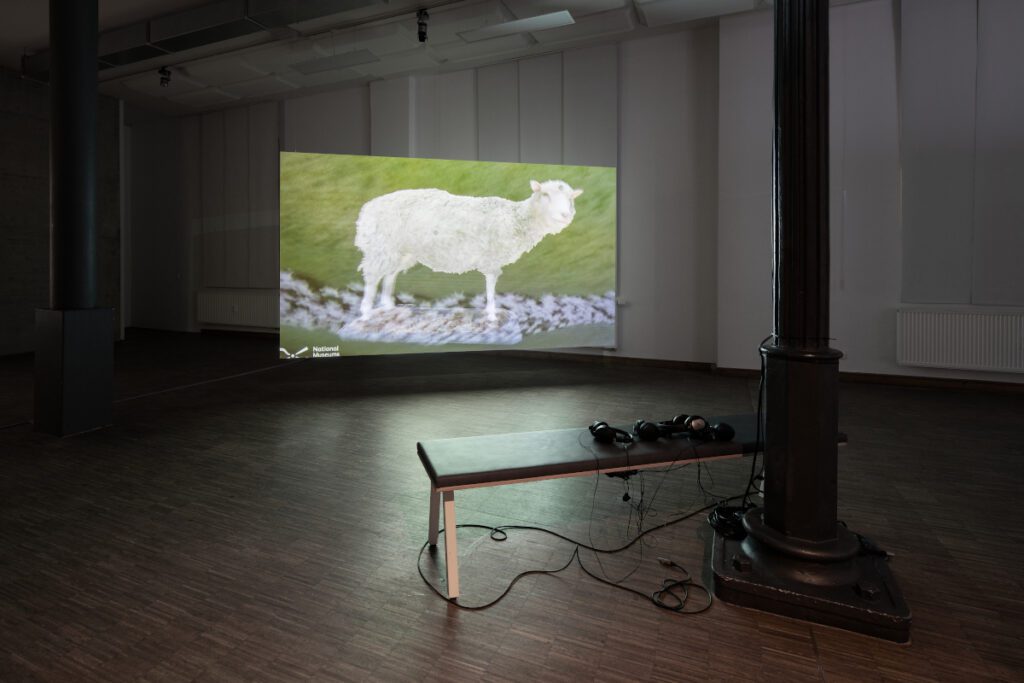HeLa et al. is an audiovisual work developed by Tess Marschner during her artistic residency at IBEC between 2023 and 2024. It is currently touring international film and contemporary art festivals. This collaboration has enriched the way IBEC communicates science, helping the institute’s research to cross borders.

IBEC celebrates the success of HeLa et al., which is touring international film and contemporary art festivals.
During her five-month residency, Marschner visited several laboratories, interviewed research staff, and immersed herself in the day-to-day work of biomedical research. This experience resulted in HeLa et al., a video essay in which elements such as the HeLa cell line, the cloned sheep Dolly, uteruses, eggs and laboratory mice are presented not only as scientific tools, but also as entities with ethical and philosophical implications.
HeLa et al. was included in the MONITORING section of the prestigious Kasseler Dokfest in Germany — an exhibition that focuses on artistic practices in new media and complements the festival’s programme. The official catalogue features a text about the work written by filmmaker Marlene Denningmann, available in German and English.
HeLa et al. has also been selected by AG Kurzfilm for the Emerging Artists – Contemporary Experimental Films and Video Art from Germany programme, which is dedicated to promoting innovative German experimental cinema works internationally. The programme aims to showcase these films not only at festivals, but also in museums, galleries, and other contemporary art spaces. As part of this initiative, 20–30 screenings are planned worldwide between 2025 and 2026. The first of these took place in January 2025 at the Stuttgarter Filmwinter festival in Stuttgart, Germany.
The international screening of the work of German artist Tess Marschner is opening up new avenues of dialogue between scientific research and artistic creation. This collaboration has enriched the way IBEC communicates science and is helping the institute’s research cross borders by highlighting the ethical and human challenges that accompany contemporary science and bioengineering.








